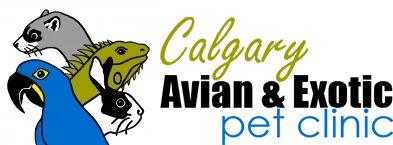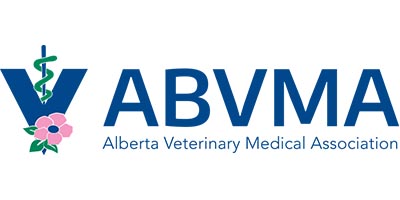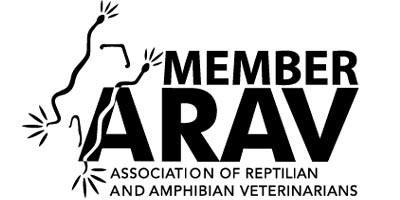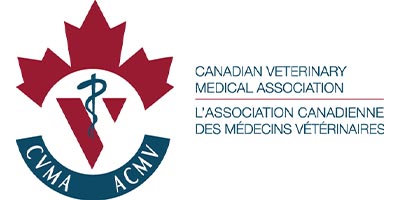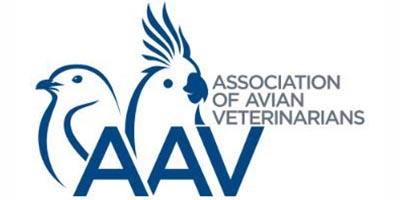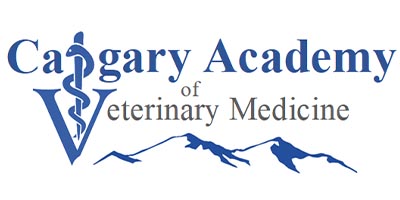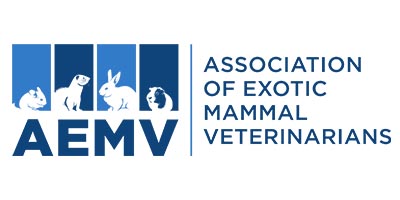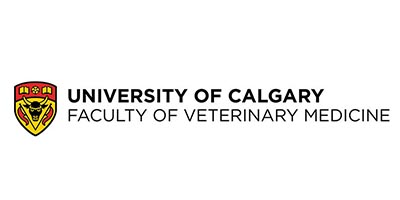Degus are highly social, long-lived rodents native to Chile. Also called the brush-tailed rat or trumpet-tailed rat, degus resemble giant gerbils. Degus are elaborate burrowers, and communicate with a variety of vocalizations and postures. Without social interaction and physical stimuli, degus may become aggressive or self mutilate.
DIET: 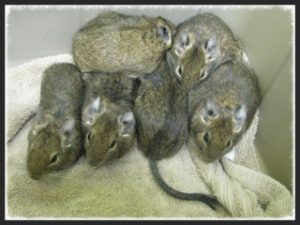
In the wild, degus eat a variety of plants, roots, seeds, fruit, and cow or horse droppings. Care must be taken when feeding pet degus to ensure adequate fiber is offered in the diet and that sugar containing items (fruit, raisins, cereals, honey sticks, starchy foods) are avoided. Diets should consist of a mixture of rodent blocks and guinea pig or chinchilla pellets along with free choice grass hays (timothy, oat, brome, meadow or orchard grass). Leafy greens, herbs, carrots, or other vegetables should be offered daily while treats such as seeds or nuts should be given sparingly. Fresh water should be available at all times.
HOUSING:
Degus should be communally housed in large well-ventilated enclosures with plenty of room to move around. As most of their time is spent chewing and digging to create an extensive network of tunnels and burrows, enclosure styles should take this into consideration and a glass or plastic enclosure with a well – ventilated mesh top and a deep base that allows the build up of nesting material is preferred. Branches for climbing, running wheels, tunnels and nest boxes provide environmental enrichment and privacy and are necessary for psychological well-being.
Deep bedding, preferably of a soft or shredded paper or aspen wood should be supplied and must be non-toxic, absorbent and dust free. Avoid using corncob or pelleted bedding as these do not allow the degus to successfully create tunnels and do not use cedar or other scented wood shavings as these can cause serious illness. When cleaning, try and replace furniture in the same locations and put a little of the old bedding back in to try and maintain the scent and structure of the community the degus built. Because of their social nature, degus should never be housed alone.
To keep their fur healthy, degus should be offered a dust bath several times a week. Commercial dust baths are typically a fine volcanic ash and should be offered in a box or an enclosed container (many owners use large jars) to prevent too much dust accumulation in the cage. Remove the dust bath after use to prevent over dusting and possible eye problems.
HANDLING: 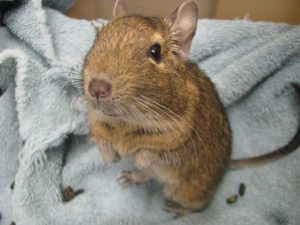
Degus can be easy to tame and learn to know their owners by smell. Small bits of a favourite food item can be fed as a positive reinforcement tool during hand training. A tamed degu will climb into a cupped hand. Never grab a degu by its tail; the tail skin will pull off exposing the muscle and bone. Degus may jump from any height. It is recommended that young owners sit on the floor while playing with their pet degu to prevent falling injuries.
PHYSIOLOGY:
The average life span of a degu is 5–8 years. They are sexually mature at 3–4 months of age and breed year round in captivity. Gestation is 87–93 days, the average litter size is 6–7 pups and weaning age is 4–6 weeks. The distance between the anal opening and the genital opening is approximately two times greater in males than females. Degus do not have a scrotal sac; the testicles are held in the abdominal. Females have four pairs of mammary glands. Males participate in rearing the pups.
COMMON PROBLEMS: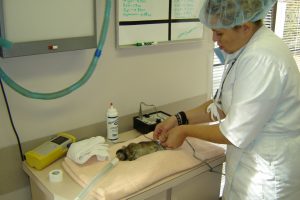
Degus are prone to diabetes, cataracts, obesity, fatty liver disease, dental disease, tail sloughing, digestive tract upsets (particularly impaction), some cancers and pregnancy toxemia. Though uncommon, degus can carry Salmonella and ringworm, both of which are zoonotic (can pass to people). Every pet degu should visit a veterinarian skilled in rodent care once a year to aid in early detection of problems and to allow a chance to update owners on the latest in care and husbandry.
THIS INFORMATION IS MEANT AS A GUIDELINE ONLY AND IN NO WAY REPLACES CONSULTATION WITH A VETERINARIAN.
